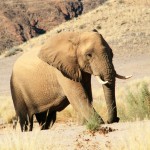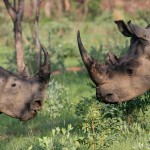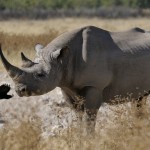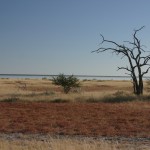by CJ Carrington, courtesy of Conservation Action Trust, South Africa
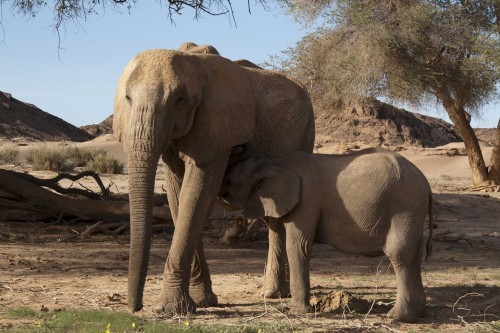
With the world still reeling from the tragic poaching death of Satao, the iconic Kenyan tusker, news that Namibia has just followed through on killing the first of the Namibian Desert Elephants on Saturday, is causing another outcry.
The Namibian Government, seemingly unfazed by the recent international outrage and negative publicity surrounding the issuing of up to six permits to hunt desert elephants, ignored offers by conservationists to buy these permits to save the elephants and allowed hunters to shoot the first of these elephants last Saturday.
The elephant nicknamed “Delta” was shot in a non-trophy hunt operated by Nick Nolte Hunting Safaris — the same hunting outfitter that had rejected an alternative offer from lodge owner Basil Calitz, who commented:
‘If it was truly a case of the communities benefitting from own use, why was the offer to purchase the permit, replace the meat, and set up sustainable food production programs denied? The long-term benefit, financial and otherwise, would have far surpassed this controversial and suspiciously timed kill.’
Joyce Poole, co-founder of Elephantvoices, commented that the Namibian Government needs a course in mathematics and elephant biology. She stated that they strongly disagree with those who call this ‘good conservation practice’.
Anton Louw from Live Trophy, who also offered to buy the permits and compensate the communities with viable alternatives, commented that he was disillusioned with Namibia’s allegedly ‘excellent’ conservation policies, and deeply saddened by the pointless loss of a virile young male elephant, which could only have contributed positively to the growth of the herd. This bull was one of only three such young bull elephants in the Ugab Family.
Respected Conservationist and pro-hunting lobbyist Garth Owens Smith commented on Monday that although he supported the Namibian Government’s decision, he was concerned about the lack of control over the specific areas in which the hunts were to take place.
‘When the hunting takes place in the South-Western Conservancies, how will they ensure that they are not shot in the very high profile non-hunt tourism areas?’
Unfortunately, in this case, his concerns proved valid, because the young bull was shot in Sorris-Sorris, a prime tourist area, near to his own family group, and in very close proximity to a local school of 200 children.
After the initial articles, a campaign on social media was launched, with over 10 000 tweets being sent in a short period of time, and a rapidly growing petition to stop all the hunting of the Desert Elephants has now racked up over 11 000 signatures.
A member of the community, Neil Mazenge, commented on Facebook: ‘I am from that conservancy but only the ones in office benefit from such a stupid decision.’
Steve Bezuidenhout, Vice-President of the RDP (main political opposition party in Namibia) strongly condemned the recent actions taken by the government, saying: ‘We are losing our game at an alarming rate. Strong distinction must be made between ‘normal’ elephants and Desert Elephants, and the latter must definitely be more protected. This is a clear case of the arrogance of power – I do it because I can, on the side of the ruling party.’
The Namibian Ministry of Environment and Tourism has been unavailable for comment.
AUTHOR BIO: CJ Carrington is a South African born Nature Lover. She has post-graduate qualifications in Agriculture and her work includes teaching sustainable organic farming to rural communities. She is actively involved in Mining Rehabilitation and Environmental Management of sensitive areas. She works and travels all over Africa and speaks just enough Swahili to get herself in trouble. Wanderlust is her drug of choice, and her heart beats to an African drum.

